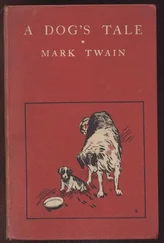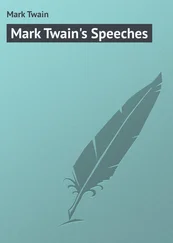Mark Twain - A Horse's Tale
Здесь есть возможность читать онлайн «Mark Twain - A Horse's Tale» весь текст электронной книги совершенно бесплатно (целиком полную версию без сокращений). В некоторых случаях можно слушать аудио, скачать через торрент в формате fb2 и присутствует краткое содержание. Жанр: Классическая проза, на английском языке. Описание произведения, (предисловие) а так же отзывы посетителей доступны на портале библиотеки ЛибКат.
- Название:A Horse's Tale
- Автор:
- Жанр:
- Год:неизвестен
- ISBN:нет данных
- Рейтинг книги:4 / 5. Голосов: 1
-
Избранное:Добавить в избранное
- Отзывы:
-
Ваша оценка:
- 80
- 1
- 2
- 3
- 4
- 5
A Horse's Tale: краткое содержание, описание и аннотация
Предлагаем к чтению аннотацию, описание, краткое содержание или предисловие (зависит от того, что написал сам автор книги «A Horse's Tale»). Если вы не нашли необходимую информацию о книге — напишите в комментариях, мы постараемся отыскать её.
A Horse's Tale — читать онлайн бесплатно полную книгу (весь текст) целиком
Ниже представлен текст книги, разбитый по страницам. Система сохранения места последней прочитанной страницы, позволяет с удобством читать онлайн бесплатно книгу «A Horse's Tale», без необходимости каждый раз заново искать на чём Вы остановились. Поставьте закладку, и сможете в любой момент перейти на страницу, на которой закончили чтение.
Интервал:
Закладка:
“It was a grand race. The whole post was there, and there was such another whooping and shouting when the seventeen kids came flying down the turf and sailing over the hurdles—oh, beautiful to see! Half-way down, it was kind of neck and neck, and anybody’s race and nobody’s. Then, what should happen but a cow steps out and puts her head down to munch grass, with her broadside to the battalion, and they a-coming like the wind; they split apart to flank her, but she ?—why, she drove the spurs home and soared over that cow like a bird! and on she went, and cleared the last hurdle solitary and alone, the army letting loose the grand yell, and she skipped from the horse the same as if he had been standing still, and made her bow, and everybody crowded around to congratulate, and they gave her the bugle, and she put it to her lips and blew ‘boots and saddles’ to see how it would go, and BB was as proud as you can’t think! And he said, ‘Take Soldier Boy, and don’t pass him back till I ask for him!’ and I can tell you he wouldn’t have said that to any other person on this planet. That was two months and more ago, and nobody has been on my back since but the Corporal-General Seventh Cavalry and Flag-Lieutenant of the Ninth Dragoons, U.S.A.,—on whom be peace!”
“Amen. I listen—tell me more.”
“She set to work and organized the Sixteen, and called it the First Battalion Rocky Mountain Rangers, U.S.A., and she wanted to be bugler, but they elected her Lieutenant-General and Bugler. So she ranks her uncle the commandant, who is only a Brigadier. And doesn’t she train those little people! Ask the Indians, ask the traders, ask the soldiers; they’ll tell you. She has been at it from the first day. Every morning they go clattering down into the plain, and there she sits on my back with her bugle at her mouth and sounds the orders and puts them through the evolutions for an hour or more; and it is too beautiful for anything to see those ponies dissolve from one formation into another, and waltz about, and break, and scatter, and form again, always moving, always graceful, now trotting, now galloping, and so on, sometimes near by, sometimes in the distance, all just like a state ball, you know, and sometimes she can’t hold herself any longer, but sounds the ‘charge,’ and turns me loose! and you can take my word for it, if the battalion hasn’t too much of a start we catch up and go over the breastworks with the front line.
“Yes, they are soldiers, those little people; and healthy, too, not ailing any more, the way they used to be sometimes. It’s because of her drill. She’s got a fort, now—Fort Fanny Marsh. Major-General Tommy Drake planned it out, and the Seventh and Dragoons built it. Tommy is the Colonel’s son, and is fifteen and the oldest in the Battalion; Fanny Marsh is Brigadier-General, and is next oldest—over thirteen. She is daughter of Captain Marsh, Company B, Seventh Cavalry. Lieutenant-General Alison is the youngest by considerable; I think she is about nine and a half or three-quarters. Her military rig, as Lieutenant-General, isn’t for business, it’s for dress parade, because the ladies made it. They say they got it out of the Middle Ages—out of a book—and it is all red and blue and white silks and satins and velvets; tights, trunks, sword, doublet with slashed sleeves, short cape, cap with just one feather in it; I’ve heard them name these things; they got them out of the book; she’s dressed like a page, of old times, they say. It’s the daintiest outfit that ever was—you will say so, when you see it. She’s lovely in it—oh, just a dream! In some ways she is just her age, but in others she’s as old as her uncle, I think. She is very learned. She teaches her uncle his book. I have seen her sitting by with the book and reciting to him what is in it, so that he can learn to do it himself.
“Every Saturday she hires little Injuns to garrison her fort; then she lays siege to it, and makes military approaches by make-believe trenches in make-believe night, and finally at make-believe dawn she draws her sword and sounds the assault and takes it by storm. It is for practice. And she has invented a bugle-call all by herself, out of her own head, and it’s a stirring one, and the prettiest in the service. It’s to call me —it’s never used for anything else. She taught it to me, and told me what it says: ‘ It is I , Soldier—come !’ and when those thrilling notes come floating down the distance I hear them without fail, even if I am two miles away; and then—oh, then you should see my heels get down to business!
“And she has taught me how to say good-morning and good-night to her, which is by lifting my right hoof for her to shake; and also how to say good-bye; I do that with my left foot—but only for practice, because there hasn’t been any but make-believe good-byeing yet, and I hope there won’t ever be. It would make me cry if I ever had to put up my left foot in earnest. She has taught me how to salute, and I can do it as well as a soldier. I bow my head low, and lay my right hoof against my cheek. She taught me that because I got into disgrace once, through ignorance. I am privileged, because I am known to be honorable and trustworthy, and because I have a distinguished record in the service; so they don’t hobble me nor tie me to stakes or shut me tight in stables, but let me wander around to suit myself. Well, trooping the colors is a very solemn ceremony, and everybody must stand uncovered when the flag goes by, the commandant and all; and once I was there, and ignorantly walked across right in front of the band, which was an awful disgrace: Ah, the Lieutenant-General was so ashamed, and so distressed that I should have done such a thing before all the world, that she couldn’t keep the tears back; and then she taught me the salute, so that if I ever did any other unmilitary act through ignorance I could do my salute and she believed everybody would think it was apology enough and would not press the matter. It is very nice and distinguished; no other horse can do it; often the men salute me, and I return it. I am privileged to be present when the Rocky Mountain Rangers troop the colors and I stand solemn, like the children, and I salute when the flag goes by. Of course when she goes to her fort her sentries sing out ‘Turn out the guard!’ and then . . . do you catch that refreshing early-morning whiff from the mountain-pines and the wild flowers? The night is far spent; we’ll hear the bugles before long. Dorcas, the black woman, is very good and nice; she takes care of the Lieutenant-General, and is Brigadier-General Alison’s mother, which makes her mother-in-law to the Lieutenant-General. That is what Shekels says. At least it is what I think he says, though I never can understand him quite clearly. He—”
“Who is Shekels?”
“The Seventh Cavalry dog. I mean, if he is a dog. His father was a coyote and his mother was a wild-cat. It doesn’t really make a dog out of him, does it?”
“Not a real dog, I should think. Only a kind of a general dog, at most, I reckon. Though this is a matter of ichthyology, I suppose; and if it is, it is out of my depth, and so my opinion is not valuable, and I don’t claim much consideration for it.”
“It isn’t ichthyology; it is dogmatics, which is still more difficult and tangled up. Dogmatics always are.”
“Dogmatics is quite beyond me, quite; so I am not competing. But on general principles it is my opinion that a colt out of a coyote and a wild-cat is no square dog, but doubtful. That is my hand, and I stand pat.”
“Well, it is as far as I can go myself, and be fair and conscientious. I have always regarded him as a doubtful dog, and so has Potter. Potter is the great Dane. Potter says he is no dog, and not even poultry—though I do not go quite so far as that.
Читать дальшеИнтервал:
Закладка:
Похожие книги на «A Horse's Tale»
Представляем Вашему вниманию похожие книги на «A Horse's Tale» списком для выбора. Мы отобрали схожую по названию и смыслу литературу в надежде предоставить читателям больше вариантов отыскать новые, интересные, ещё непрочитанные произведения.
Обсуждение, отзывы о книге «A Horse's Tale» и просто собственные мнения читателей. Оставьте ваши комментарии, напишите, что Вы думаете о произведении, его смысле или главных героях. Укажите что конкретно понравилось, а что нет, и почему Вы так считаете.











